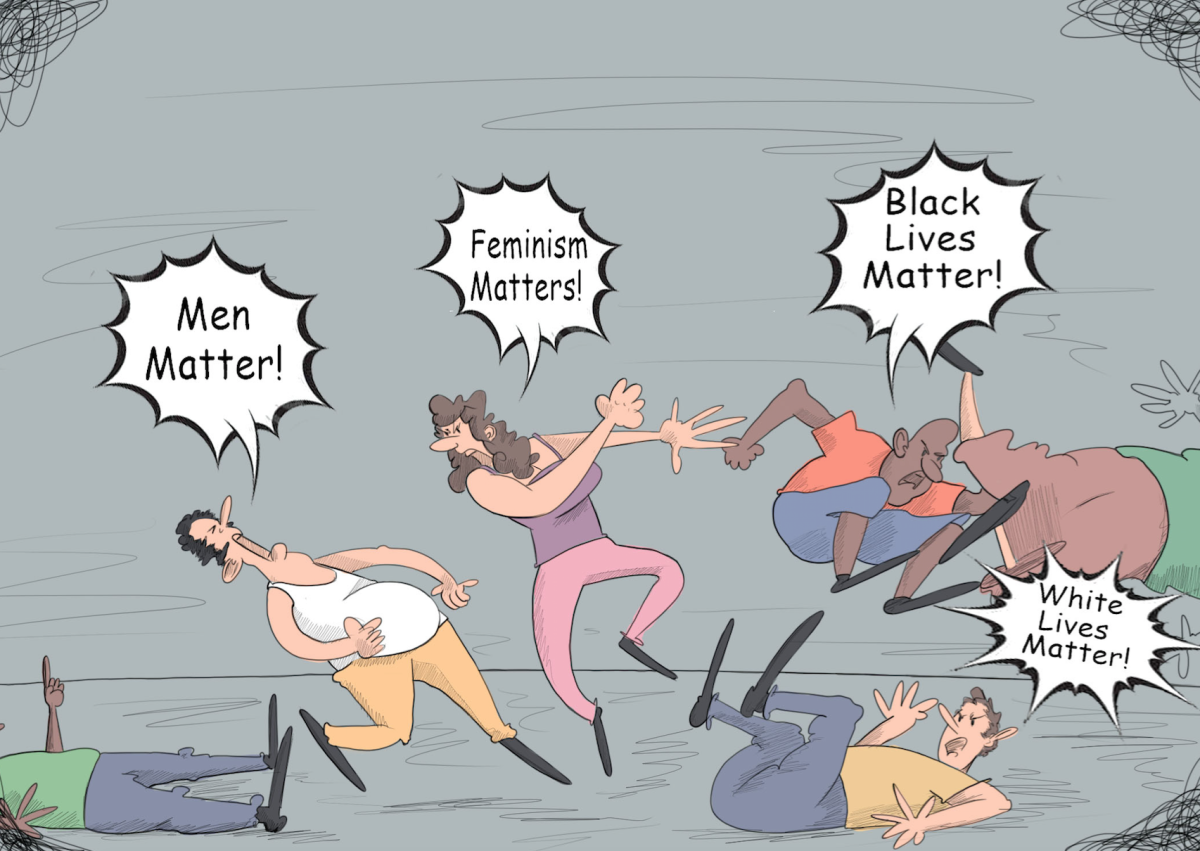Dr. Martin Luther King’s famous “I Have A Dream” speech contains sentiments that will be eternally relevant. “I have a dream that my four little children will one day live in a nation where they will not be judged by the color of their skin, but by the content of their character,” King said 56 years ago. The Civil Rights Movement might be the most righteous campaign in American history. They were seeking to erase the political implications of identity.
Identity politics is the inclination for people of a particular race, creed, sex, ideology or cultural identity to promote their interests while disregarding others. Obvious examples include white nationalism, Indian Hindu nationalism, toxic feminism or militant left-wing extremism. There is nothing inherently wrong with celebrating or promoting the interests of one’s identity. That celebration and promotion only becomes a problem when it is at the disregard or expense of others.
White nationalists would like to see America become a white ethnostate. Muslim Indians are discriminated against because the ruling party is Hindu. Men can be pretty terrible, but we aren’t all evil. Not all conservatives are misogynistic or racist.
The Civil Rights Movement was brilliant because it promoted inclusiveness rather than divisiveness. An identity group, black Americans, fought for rights they were being denied. They did not demonize whites as a whole, only those who perpetuated racism. They did not say, “I hate white people.” They said, “We don’t want the color of anyone’s skin to matter.” King’s vision, according to his speech, included eradicating the role race plays in politics.
Just as hate cannot be fought with hate, discrimination cannot be fought with discrimination. We live in a pluralistic society. Everybody has something to offer to the conversation. America was founded as a nation accepting of all identities and on the basis that everyone is equal. This is not to say that we shouldn’t celebrate our differences and similarities. I see nothing wrong with clubs celebrating ethnicities, but Charlottesville provides a tragic example of how that celebration of one particular identity in politics can quickly become hate.
Black Lives Matter is one of the more controversial examples of identity politics employed negatively. The idea itself is fine. A racial disparity exists and this group set out to make equality a reality. Identity politics, however, is why the group has been met with such tough opposition. The notion of “black lives matter” is incredibly valid. But, critics were quick to point out the flaw in that “all lives matter.” I’m hesitant to speculate, but I think the latter is more of what Dr. King was getting at.
Identity politics is dangerous and counterproductive. While those groups should be fighting for equality and inclusiveness, they end up pushing others away and delegitimizing their own cause. Identity and diversity should be celebrated. Our unique experiences and cultures are what makes America so beautiful, but there’s a very fine line to traverse when seeking progress.
James Smith is a 22-year-old mass communication senior from Grand Coteau, Louisiana.
Opinion: Identity politics counterproductive, damaging to inclusivity
By James Smith
March 13, 2019
cartoon







